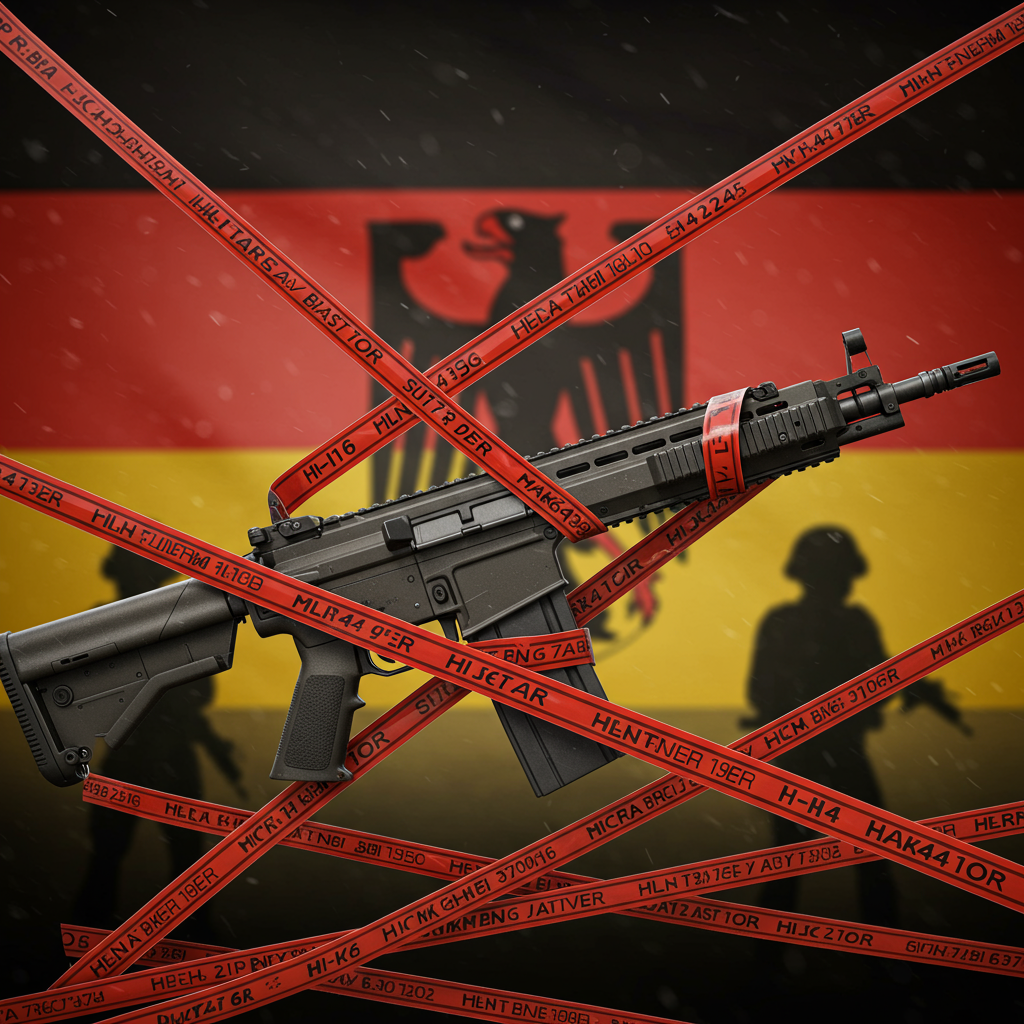UK Prime Minister Keir Starmer has stated that he does not believe the Irish rap trio Kneecap’s planned performance at Glastonbury Festival next week is “appropriate.” The comments come amid controversy surrounding a band member’s recent court appearance on a terror charge.
Speaking in an interview, Sir Keir referenced a pending court case and “threats that shouldn’t be made” as reasons for his stance, adding that “we need to come down really clearly on this,” while limiting further comment due to the ongoing legal proceedings.
Terror Charge Sparks Controversy
The controversy centers on Kneecap member Liam Óg Ó hAnnaidh, also known as Liam O’Hanna or Mo Chara, who appeared in Westminster Magistrates’ Court. He is charged under the Terrorism Act in relation to an incident at a gig last November where he allegedly displayed a flag supporting the proscribed organisation Hezbollah and chanted “Up Hamas, Up Hezbollah.” Both Hezbollah and the Palestinian militant group Hamas are banned in the UK, and expressing support for them is illegal.
Ó hAnnaidh was released on unconditional bail following the hearing and is scheduled to appear in court again on 20 August.
Further Political Opposition
Prime Minister Starmer is not the only prominent politician to weigh in. Conservative Party leader Kemi Badenoch has also publicly opposed Kneecap’s performance. On social media, she asserted that the BBC “should not be showing Kneecap propaganda,” arguing that as a publicly funded platform, it “should not be rewarding extremism,” specifically citing the band member facing a terror charge.
Badenoch has a history with the band, having previously lost a discrimination case against them after attempting to block a £14,250 arts funding award while she was a minister. Kneecap later released a song that reportedly mocked her previous actions and the Conservative Party’s electoral performance.
Kneecap Hits Back and Confirms Glastonbury
Kneecap has responded defiantly to the political criticism. On social media, they used an expletive to accuse the Prime Minister of arming a genocide, referencing the ongoing conflict in Gaza, which Israel strongly denies.
Regarding the terror charge, the band denies the offence and has vowed to “vehemently defend” themselves. They have characterised the charge as “political policing” and a “carnival of distraction” designed to silence them from speaking out, particularly on the situation in Gaza, which they claim is experiencing “genocide.” They have also accused the “British establishment” of focusing on them while allegedly abetting “slaughter and famine” in Gaza, calling the IDF the “real terrorists.” While acknowledging and previously apologising for footage that reportedly included calls for the deaths of MPs, they maintain this footage has been “exploited and weaponised.”
Despite the legal issues and political pressure, the band confirmed they still plan to perform at Glastonbury at 4 pm on Saturday, June 28th. Following his court appearance, Liam Óg Ó hAnnaidh stated, “For anybody going to Glastonbury, you can see us there at 4pm on the Saturday. If you can’t be there we’ll be on the BBC…” He concluded by adding, “But most importantly: free, free Palestine.”
BBC Position and Wider Context
The BBC, which is the broadcast partner for Glastonbury, stated they would provide extensive coverage of the festival featuring artists booked by the organisers. A spokesperson clarified that the BBC “doesn’t ban artists” but affirmed that programming decisions made closer to the festival would ensure compliance with editorial guidelines.
Sources indicate that the UK government had previously urged Glastonbury organisers to “think carefully” about the band’s appearance. Kneecap has reportedly been removed from several other summer festival lineups in Scotland and Germany following controversies.
Analysis suggests that the high-profile political commentary is likely to increase Kneecap’s profile, regardless of intent. The band, an Irish-speaking rap trio formed in 2017 known for their provocative lyrics and merchandise, already enjoys significant popularity, selling out venues and attracting large online audiences. Hundreds of supporters wearing “Free Mo Chara” T-shirts rallied outside the court, indicating a strong base who feel the band represents their views. Kneecap’s rise even inspired a semi-fictionalised film starring Michael Fassbender, which won a Bafta award earlier this year.
The controversy highlights the tension between political concerns regarding alleged support for proscribed groups and the band’s artistic expression, political activism, and legal challenges, all set against the backdrop of a major international music event.



